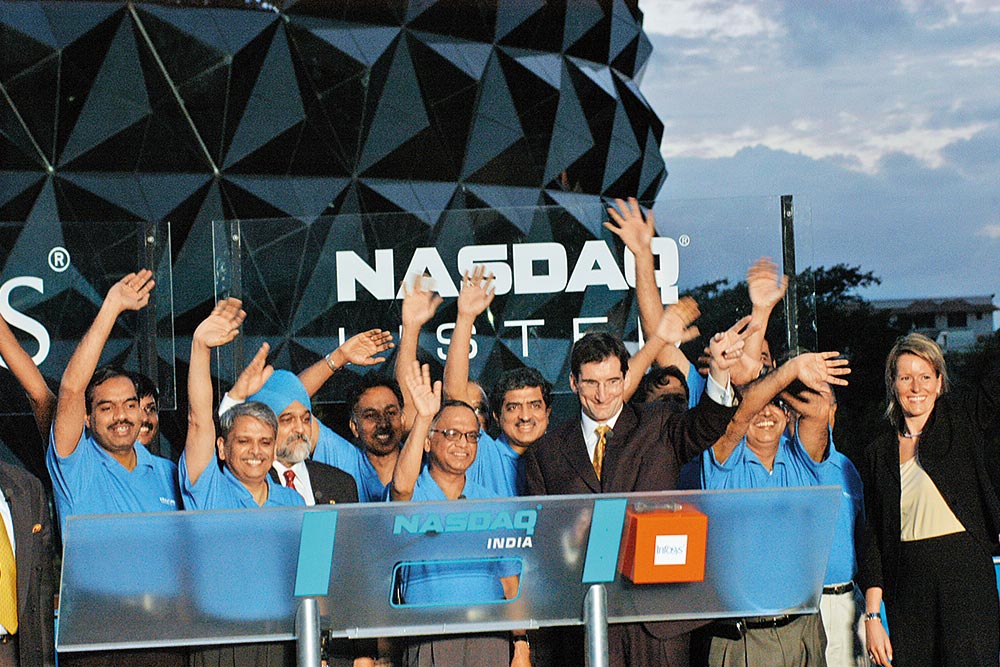The Indian start-up ecosystem is poised to take the nation’s economy to the peak in coming years. For the government that comes into power, it will be crucial to have a razor-sharp focus on giving today’s start-ups the much-needed boost so that they are able to become tomorrow’s giants and contribute not only to the $5-trillion-economy goal but also pave the way for ‘Viksit Bharat@2047’.
A McKinsey and Confederation of Indian Industry (CII) report titled Unicorn 2.0 states that in the last 10 years, roughly 13–15% of India’s gross domestic product (GDP) growth rate has come from the start-up ecosystem. This estimate is going to grow larger as we go along. The government is aware of this development.
We have certainly come far but there is a long way to go. Every business takes time to grow from scratch. It was in the business landscape of the early 1980s that the seeds of today’s tech giants, such as Infosys, Wipro, TCS and HCL, were just being sown. Back then, these companies were akin to fledgling start-ups embarking on their entrepreneurial journeys with ambitious dreams.
Fast forward to the present day. The metamorphosis is staggering—these start-ups have evolved into towering pillars of the global tech industry, revolutionising the information technology landscape not only in India but on a worldwide scale.
Journey from 1984 to 2024
In 1984, the absence of private sector airlines, telecom companies, ecommerce platforms and food delivery services was palpable. However, the intervening years have witnessed an extraordinary transformation with these new sectors now occupying prominent positions in the economy, catalysed by innovative endeavours of start-ups.
Indeed, the growth trajectory of numerous industries has been profoundly influenced by the pioneering spirit and relentless efforts of these budding ventures. When a company becomes big, it just does not mean success for the company itself, it also means creation of wealth, creation of jobs, foreign exchange for India and so on.
Over the past four decades, the Indian landscape has undergone a significant transformation. The emergence of new sectors and companies has been instrumental, particularly following the economic liberalisation in 1991. This liberalisation unleashed a wave of employment opportunities and wealth creation and fuelled the growth of start-ups across diverse sectors.
Consider the remarkable journey of companies like Zomato, emblematic of the transformative power of start-ups. What began as a modest initiative a decade ago has blossomed into a colossal enterprise with a market capitalisation soaring to Rs 1.7 lakh crore, supporting the livelihood of a vast workforce comprising 3.7 lakh individuals. This narrative underscores the indispensable role that start-ups play in driving employment generation, fostering economic growth and beckoning further investments.
The ascent of start-ups from humble beginnings to becoming industry titans not only underscores their resilience and ingenuity but also heralds a promising future where the giants of tomorrow are poised to emerge from the ranks of today’s most visionary start-ups. In essence, the narrative of India’s business landscape is intricately intertwined with the narrative of its start-ups, underscoring their pivotal importance as engines of innovation, progress and prosperity.
Ease of Starting Up
The government is the single-most important institution in the country and, of course, it needs to focus on availability of capital and mentorship for start-ups. It must also foster an environment conducive to the formation and growth of start-ups while also encouraging investment in such ventures and ensuring there is enough support for them to flourish. A lot of potential start-ups often face hurdles when it comes to funding and balancing the company thereafter.
Enabling legislation and regulations are essential to streamline the process of establishing start-ups. Moreover, there should be a shift towards implementing tax incentives for both start-ups and their investors. Whether it is venture capitalists or angel investors, incentivising their contributions to the nation’s economic growth by supporting start-ups is crucial.
The current scenario in India still has its share of challenges. While securing venture capital funding may have become relatively easier, obtaining bank loans remains a daunting task for start-ups. Recognising that the venture capital market constitutes high-risk capital, it is essential to incentivise and motivate investors to bet on start-ups as they hold the potential to evolve into major contributors to the economy in coming years. The domestic venture capital industry is hopeful and looking forward to incentives that could help get a fillip.
Addressing issues like the angel tax, which imposes levies on unlisted companies based on the capital they raise through share issuance, is critical. The imposition of angel tax has been a significant concern for start-ups. Streamlining and potentially easing this tax could provide a much-needed boost to the start-up ecosystem. Additionally, equalising capital gains across private and public companies would be beneficial.
The government can invigorate the start-up ecosystem by making tax on employee stock ownership plans (ESOPs) employee friendly. A decade or so ago, ESOPs were available to independent directors. That is not the scenario today. Onboarding independent directors could not only enhance corporate governance but also facilitate compliance with regulations, thereby ensuring a start-up is on the right track. Moreover, good governance should be deeply ingrained in the founders as no amount of oversight by investors, boards or auditors can ensure good governance if the company is not committed to it.
The start-up industry is hopeful that with the current growth of the ecosystem, the incoming government will pay attention to these issues and ease the way for budding entrepreneurs as they come from different parts of India and go on to create history and make way for India to be a superpower.

Sanjeev Bikhchandani is co-founder and vice executive chairman, Info Edge











